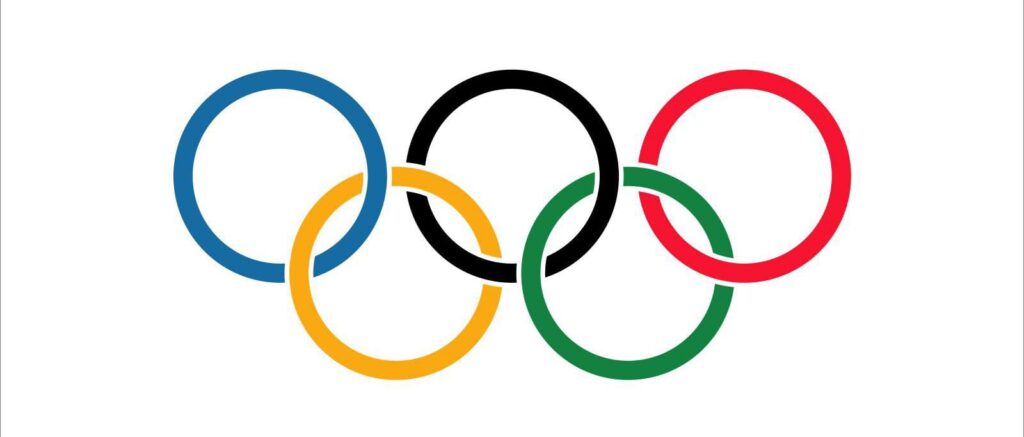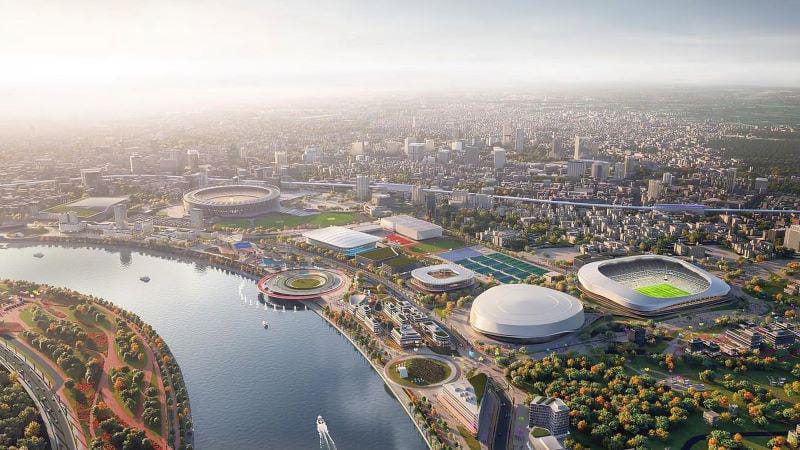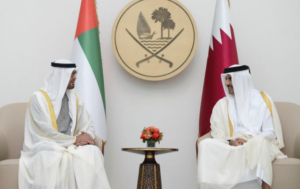In a move long anticipated within Olympic circles, Qatar has formally thrown its hat into the ring to host the 2036 Olympic race Summer. The announcement came last week as part of a well-coordinated global publicity campaign, officially confirming months of speculation.
With this declaration, Qatar joins a growing list of hopefuls that includes India, Turkey, Indonesia, Hungary, and Germany — the latter eyeing a symbolic return 100 years after hosting the controversial 1936 Games.
The International Olympic Committee (IOC) has currently paused its host selection process as it reevaluates the existing rules, making the outcome of the bidding process highly unpredictable.
While each country presents a strong case, history suggests that political negotiations and behind-the-scenes maneuvering often weigh as much as — if not more than — technical merit. Few know this better than Qatar, whose successful but contentious bid for the 2022 FIFA World Cup remains fresh in global memory.

Competing Visions: Peace, Diversity, and Progress
Qatar’s initial pitch paints the Olympics as a platform to unite a divided world.
“We view sport as a means to foster a world that is more united, tolerant, and harmonious,”
the Qatar Olympic Committee stated.
On similar lines, India’s bid frames the Games as a vehicle to promote
“peace, friendship and collective progress among all nations.”
Inclusivity is another shared focal point. Qatar promises a
“vibrant, inclusive platform that welcomes diverse cultures and backgrounds.”
India highlights its multicultural society, calling it a
“mosaic of religions, including Hinduism, Islam, Christianity, Sikhism, Buddhism, and Jainism.”
Strategically, both nations have aligned their Olympic bids with long-term national visions:
- Qatar emphasizes its “National Vision 2030”
- India ties its Olympic dream to “Viksit Bharat 2047”, a national development plan for the next two decades.
Infrastructure: Ready vs. Rising
One of Qatar’s strongest advantages lies in its infrastructure.
The country claims that 95% of the Olympic venues are already built and have been tested at the highest levels of international competition.
In the past 20 years, Qatar has hosted:
- 18 World Championships
- The 2006 Asian Games
- Scheduled to host again in 2030
“With world-class venues already in place and tested, Doha 2036 Olympic race shifts the focus from infrastructure development to delivering exceptional experiences and meaningful legacy from day one,”
said the Qatar Olympic Committee.
India, meanwhile, is still building its foundation.
Ahmedabad has been officially presented as the candidate city, and construction has recently accelerated on the Sardar Vallabhbhai Patel Enclave — expected to be the central hub of the Games.
In preparation, India has either bid for or is bidding to host:
- 2030 Commonwealth Games (almost certain for Ahmedabad)
- 2027 Women’s Volleyball World Championship
- 2028 World U20 Athletics Championships
Additionally, in 2025, Ahmedabad will host:
- Commonwealth Weightlifting Championship
- Asian Swimming Championship
Regional Representation and Global Diplomacy
Qatar’s bid emphasizes its unique regional positioning.
If successful, Doha 2036 Olympic race would mark the first time the Olympic and Paralympic Games are held in the Middle East and North Africa.
“This milestone would allow Qatar to present a distinctive Arab model for the Games – one rooted in diversity and openness,”
their media release stated.
Qatar also highlights its role as a diplomatic hub, calling the Olympic bid:
“a natural extension of our diplomatic legacy, inviting the world to connect in an environment of peace and mutual respect.”
India, for its part, underscores the historic nature of its bid:
“The only major economy yet to host the Games,”
— an appeal to the IOC’s aim for broader global representation.
Conclusion
As the 2036 Olympic race heats up, both nations present compelling — yet contrasting — visions for the Olympics. With the IOC’s decision-making process currently on hold, the coming months will be crucial as each contender works to solidify its case.









